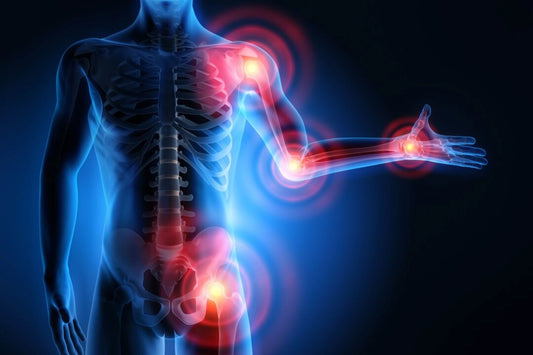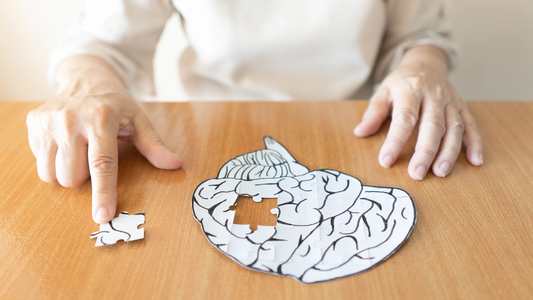Daily Brain Care has a distinct competitive advantage as the best brain health supplement over the rest of the products in the brain health or nootropic space in the dietary supplement industry: a 12-month clinical trial that was conducted in patients with a memory disorder and cognitive dysfunction showing clinically and statistically significant improvements in cognition and immune functioning without significant side effects. To our knowledge, no other product can match our levels of effectiveness according to the results of our findings (Lewis et al., 2013; Martin et al., 2017; Stillman et al., 2019)!
Nonetheless, quite a few other studies in cognitive functioning have been conducted on two dietary compounds: Gingko biloba and vitamin E. For example, a meta-analysis among studies of Alzheimer's patients taking 120 to 240 mg of Gingko biloba for 3- to 6-month treatment periods revealed a small though statistically significant effect on objective measures of cognitive function (Oken et al., 1998). However, a study by Solomon et al. (2002) revealed that Gingko biloba, when taken following manufacturer’s instructions, had no beneficial effect on memory and related mental functions in 230 physically and mentally healthy adults over the age of 60. While central nervous system oxidative stress has been theorized as a possible cause for Alzheimer's and dementia, researchers have found protective effects of vitamins E and C against cognitive decline (Paleologos et al., 1998; Perrig et al., 1997). Others found that 2,000 IU of vitamin E slowed the progression of moderately severe Alzheimer's in a group of patients, but no changes in cognitive functioning were found (Sano et al., 1997).
Meanwhile, five FDA-approved medications are prescribed for dementia and Alzheimer's patients. Although Daily Brain Care is a dietary supplement and not regulated by the FDA as a drug, it might be useful to mention these compounds as competitors. For the early to moderate stages of Alzheimer's, the cholinesterase inhibitors are used: Aricept (donepezil), Exelon (rivastigmine), and Razadyne (galantamine). These drugs are used to treat symptoms related to cognitive functioning, may help delay symptoms or slow them from worsening for a limited time, are not particularly efficacious, and as with all drugs have significant side effects. For moderate to severe stages of Alzheimer's, Namenda (memantine), Aricept (donepezil), and Namzaric (a combination of Namenda and Aricept) are the drugs prescribed, with Namenda being the most common. Namenda might temporarily improve some aspects of cognitive functioning, but will decline in efficacy over time and also has significant adverse effects.
References
Lewis, J.E., McDaniel, H.R., Agronin, M., Loewenstein, D., Riveros, J., Mestre, R., Martinez, M., Colina, N., Abreu, D., Konefal, J., Woolger, J.M., & Ali, K.H. (2013). The effect of an aloe polymannose multinutrient complex on cognitive and immune functioning in Alzheimer’s disease. The Journal of Alzheimer’s Disease, 33, 393-406.Martin, A., Stillman, J., Miguez, M-J., McDaniel, H.R., Konefal, J., Woolger, J., & Lewis, J.E. (2017). The effect of dietary supplementation on brain-derived neurotrophic factor and cognitive functioning in Alzheimer’s dementia. Journal of Clinical and Translational Research, 3(3), 1-6.Oken, B.S., Storzbach, D.M., & Kaye, J.A. (1998). The efficacy of ginkgo biloba on cognitive function in Alzheimer's disease. Archives of Neurology, 55, 1409-1415.Paleologos, M., Cumming, R., & Lazarus, R. (1998). Cohort study of vitamin c intake and cognitive impairment. American Journal of Epidemiology, 148, 45-50.Perrig, W., Perrig, P., & Stahelin, H. (1997). The relation between antioxidants and memory performance in the old and very old. Journal of the American Geriatric Society, 45, 718-724.Sano, M., Ernesto, C., Thomas, R.G., Klauber, M.R., Schafer, K., Grundman, M., Woodbury, P., Growdon, J., Cotman, C.W., Pfeiffer, E., Schneider, L.S., & Thal, L.J. (1997). A controlled trial of selegiline, alpha-tocopherol, or both as treatment for Alzheimer’s disease. The New England Journal of Medicine, 33(6), 1216-1222.Solomon, P.R., Adams, F., Silver, A., Zimmer, J. & DeVeaux, R. (2002). Ginkgo for memory enhancement: a randomized controlled trial. Journal of the American Medical Association, 288, 835-840.Stillman, J., Martin, A., Miguez, M.J., McDaniel, H.R., Konefal, J., Woolger, J.M., & Lewis, J. E. (2019). Relationship between brain-derived neurotrophic factor and immune function during dietary supplement treatment of elderly with Alzheimer’s dementia. Journal of Clinical and Translational Research. 5(2), 68-75.




